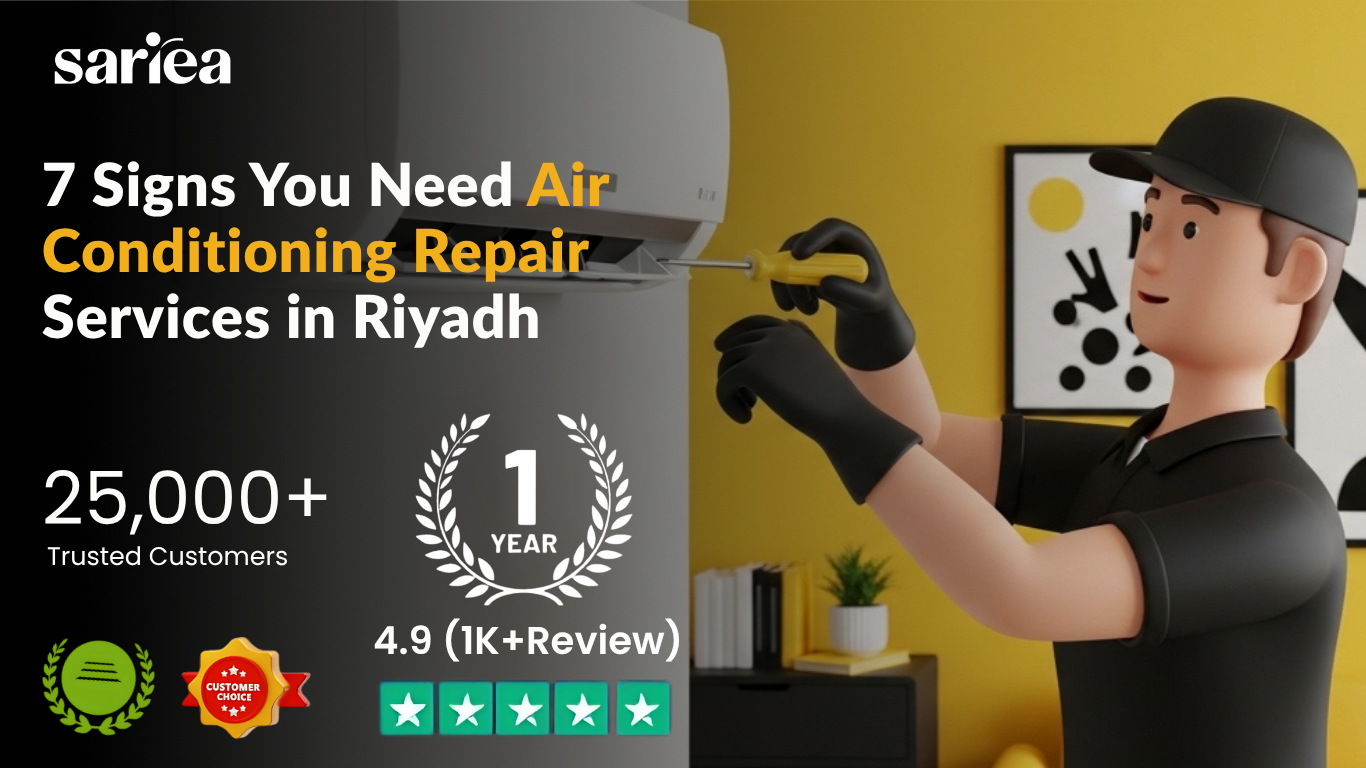If you’re living in Al Khobar and notice certain rooms being way warmer or cooler than others, that’s a sign something might be off with your AC. Strange noises like grinding or banging also mean it could need some repair. Unpleasant smells, especially musty ones, could point to mold growth, while burning odors might suggest electrical issues. A sudden increase in your energy bills may indicate the system is struggling. Also, if your AC is short cycling—turning on and off frequently—or if airflow seems weak from the vents, these are red flags too. Lastly, any water leaks around the unit need quick attention to prevent damage.
1. Inconsistent Temperatures in Your Home
Experiencing inconsistent temperatures throughout your home can be a frustrating issue. If you find that some rooms are significantly warmer or cooler than others, it may be a clear sign that your air conditioning system is not functioning properly. This uneven cooling can stem from various problems, such as leaks in the ductwork that allow cool air to escape, or an air conditioning unit that is too small for your home’s size. For example, if your living room is icy but your bedroom feels like a sauna, it’s time to investigate further. An improperly sized AC unit might struggle to maintain consistent temperatures, leading to discomfort and inefficiency. Addressing these temperature discrepancies early can help ensure that your home remains comfortable and that your system runs efficiently.
2. Strange Noises from Your AC Unit
If your air conditioning unit starts producing strange noises, it’s more than just an annoyance; it could signal underlying mechanical problems. Common sounds include grinding, squealing, or banging. For instance, a grinding noise might suggest that the bearings in the motor are wearing out, which could lead to a complete system failure if not addressed. Squealing noises often indicate that the fan belt is loose or damaged, while banging sounds could mean that internal components are coming loose or that there is debris inside the unit. Ignoring these noises can worsen the issue, leading to costly repairs or even the need for a full system replacement.
3. Unpleasant Odors When Running AC
If you notice any unpleasant odors while your air conditioning unit is running, it’s crucial to take action. A musty smell could indicate mold or mildew growth within the system, which can affect air quality and pose health risks. This often happens when moisture accumulates in the ductwork or on the cooling coils. On the other hand, a burning smell might signal electrical issues, such as overheating wires or a failing motor. Ignoring these odors can lead to more significant problems and costly repairs down the line. For instance, if mold spreads, it could necessitate extensive cleaning or even replacement of components. Therefore, if you detect any strange smells, it’s best to contact a professional to diagnose and resolve the issue promptly.
- Musty or moldy smells
- Sour or pungent odors
- Burning smells
- Chemical-like odors
- The smell of rotten eggs
- A sweet, syrupy smell
- Strong dust or dirt odors
4. Increased Energy Bills You Can’t Explain
If you notice a sudden jump in your energy bills, it may be a sign that your air conditioning system is not functioning efficiently. When your AC unit is struggling to cool your home, it uses more energy, leading to higher utility costs. For example, if your bill has noticeably increased from one month to the next without a corresponding rise in usage or rates, it’s time to investigate. Common causes for this inefficiency include dirty air filters, which restrict airflow, or failing components that cause the system to work harder. Taking immediate action can help you save money and restore comfort.
| Potential Cause | Description | Signs to Look For |
|---|---|---|
| Dirty Filters | Clogged filters restrict airflow and cause the system to work harder. | Increased energy consumption, dust buildup in home. |
| Failing Components | Malfunctioning parts can lead to inefficiency. | Strange noises, inconsistent cooling. |
| Duct Leaks | Air escaping from ducts reduces efficiency. | Hot spots in home, higher energy bills. |
| Improper System Size | An AC unit that is too small or too large can cause inefficiency. | Frequent cycling, uneven cooling. |
5. Frequent Cycling of Your AC System
Frequent cycling, or short cycling, occurs when your air conditioning unit turns on and off in rapid succession. This can be frustrating and is often a sign of an underlying issue. One common cause of short cycling is a malfunctioning thermostat, which may be inaccurately reading the temperature in your home. For example, if your thermostat is placed in a location that receives direct sunlight, it may trigger the AC to turn off prematurely, thinking the home is cooler than it actually is. Additionally, an improperly sized unit can struggle to maintain the desired temperature, causing it to cycle more frequently than necessary. This not only leads to increased wear and tear on the system but can also result in higher energy bills and reduced comfort in your home. If you notice your AC system frequently cycling, it’s essential to have it inspected by a professional to identify and resolve the issue.
6. Poor Airflow from Vents
Experiencing poor airflow from your AC vents can be a frustrating issue, as it directly affects your comfort level at home. If you find that the air coming from your vents is weak or barely noticeable, it could indicate a blockage in the ductwork, a dirty air filter, or a malfunctioning blower motor. For example, if you notice that one room feels stuffy while another is relatively cool, it may signal that air is not circulating properly. Additionally, a clogged filter can restrict airflow, making your system work harder and less efficiently. Ignoring this issue can lead to higher energy bills and increased wear on your AC unit, making timely repairs essential.
7. Water Leaks Around Your AC Unit
Water leaks around your AC unit can be a serious concern. If you notice any pooling water or excessive moisture near your air conditioning system, it’s essential to address the issue promptly. This could indicate a refrigerant leak or a problem with the condensate drain line. For example, if the drain line is blocked, water can back up and leak into your home. Not only can this lead to water damage and costly repairs, but it can also create an environment conducive to mold growth, which poses health risks. It’s crucial to call a professional to inspect and repair any leaks to maintain the efficiency of your AC and protect your home.
Frequently Asked Questions
1. What are the signs that my AC needs repair?
You should look for signs like unusual noises, poor airflow, strange smells, or if your AC is cycling on and off frequently.
2. Why is my air conditioner blowing warm air?
If your AC is blowing warm air, it could be due to a refrigerant leak, a broken compressor, or a faulty thermostat.
3. How can I tell if my AC is not working efficiently?
If you notice high energy bills, the system runs longer than usual, or it doesn’t cool your space effectively, it may not be working efficiently.
4. What should I do if my AC is leaking water?
A leaking AC could mean a clogged drain line, a broken pump, or low refrigerant, and you should have it checked by a professional.
5. When should I schedule maintenance for my AC?
It’s best to schedule maintenance at least once a year, ideally before the summer heat, to ensure your AC runs smoothly.
If you notice inconsistent temperatures, strange noises, unpleasant smells, unexpected energy bill increases, frequent cycling, poor airflow, or water leaks from your AC unit, it’s time to contact Sariea for professional AC repair services in Al Khobar.






